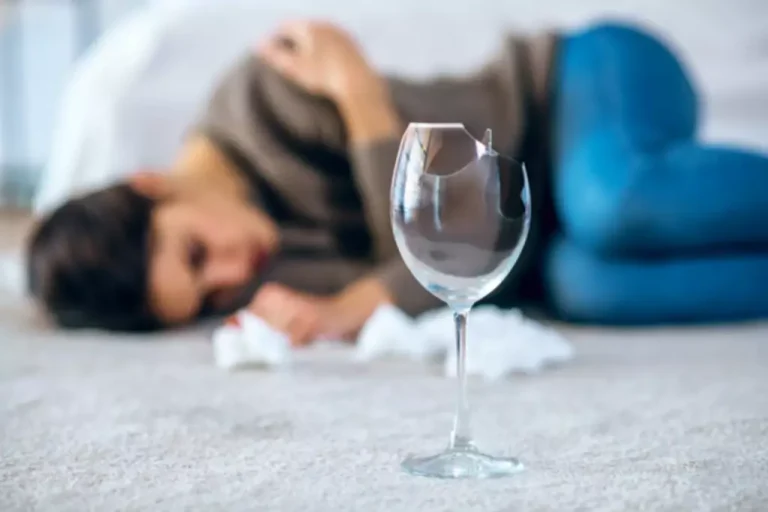
Why Do I Snore When I Drink? The Link Between Alcohol and Snoring
Content
Common sulfites include potassium bisulfite or potassium metabisulfite. Sulfur dioxide is another closely related chemical that can trigger reactions in some people. The online discussions on this phenomenon range from catching a closet drinker in the act to a life-threatening allergy situation (please, carry an epi-pen in this case). Some say it is more about the type of beer (too many hops) than a reaction to the alcohol in beer. One older study in people with asthma found that over 40 percent of participants said that drinking alcohol prompted allergy or allergy-like symptoms. Alcohol intolerance is caused by a genetic condition in which the body can’t break down alcohol efficiently.
For example, alcohol may exacerbate preexisting asthma conditions. If someone has a true allergy to alcohol, they should avoid the substance entirely. People with alcohol intolerance could https://ecosoberhouse.com/ still consume alcohol, although they will likely experience side effects. These compounds are often added to beer and wine to limit the growth of yeast and act as a preservative.
How can you treat alcohol allergy?
Nearly 1.2 percent of adults in the United States are allergic to wheat. Often, people who are allergic to wheat are also allergic to barley, though that’s not always the case. Barley is typically considered safe for those with wheat allergies. If you have alcohol intolerance, it’s wise to cut back on alcohol or quit drinking.
- Some types of sulfites might also trigger an asthmatic attack if you have asthma.
- Or friends may meet up without any clear agenda except to drink wine and talk.
- ALDH turns aldehyde into acetic acid, a nontoxic substance that doesn’t cause any harm.
- Certain components of alcoholic beverages, such as histamines and sulfites, can act as triggers for allergy-like symptoms, including sneezing.
- Eating certain types of food or very large meals can both cause nasal irritation.
If left untreated, an allergic reaction can quickly become worse. Higher alcohol use and cancer american cancer society histamines in your drinks mean that you’re more likely to react to an allergy trigger because you’re body is already elevated. Few things can be more frustrating than enjoying a drink with friends only to be interrupted by incessant sneezing. Alcohol-induced sneezing is a peculiar phenomenon that affects a small percentage of individuals. While the exact cause is not fully understood, several theories attempt to explain why some people experience this reaction.
Can antihistamines help alleviate alcohol-induced sneezing?
If you suspect you have alcohol intolerance, it is best to consult a healthcare professional for an accurate diagnosis and advice. One theory suggests that alcohol-induced sneezing may be related to nasal congestion. Alcohol has been known to cause dilation of blood vessels, including those in the nasal passages, leading to congestion and potentially triggering sneezing. Additionally, taking Pepcid before drinking can pose long-term health risks, like higher rates of esophagus and stomach cancer.

It was first mentioned in a letter to the Journal of Medical Genetics in 1989 by two researchers. They described the case of a 32-year-old man who sneezed uncontrollably three to four times after each meal. He told researchers that why do i sneeze when i drink alcohol his father, grandfather, three brothers, one of his two sisters, an uncle, and a cousin all had the same symptoms. When your throat muscles are relaxed, they can end up partially blocking your airway while you’re lying down.
Can You Be Allergic to Alcohol? Yes, Here’s What to Know About Alcohol Intolerance
It may occur after eating or drinking grape products, including wine, raisins, and fresh grapes. It’s also found in many foods and beverages, especially fermented products. For example, aged cheese, smoked meats, sauerkraut, wine, and beer tend to be high in histamines. An alcohol intolerance rash looks like red, itchy bumps or hives on your skin. Hives can also signal an alcohol-related allergy, so be on the lookout for other symptoms that are exclusive to alcohol intolerance. If you’re unsure whether you have an allergy or intolerance, consult with your healthcare provider.

Treating a minor reaction to wine may involve taking oral antihistamines. These can either be acquired over the counter or through a prescription from your doctor. Although no fining agents were detected in the wines, a very small skin reaction was observed in people with a milk, egg, or fish allergy. Due to the small scale of the response, the researchers concluded fining agents pose a very low risk. If you’ve had reactions to wine, could you also have reactions to other things?
What is the difference between alcohol allergy and intolerance?
It’s possible to be allergic to alcohol, but it’s not very common. Most people who think they have an alcohol allergy actually have an alcohol intolerance (also called acute alcohol sensitivity). Alcohol intolerance can cause immediate, uncomfortable reactions after you drink alcohol. The most common signs and symptoms are stuffy nose and skin flushing. For many people, wine is the drink that causes them to sneeze.
- They found that more people reported symptoms following the drinking of red wine than of white wine.
- If this happens frequently, you may have alcohol intolerance.
- When your throat muscles are relaxed, they can end up partially blocking your airway while you’re lying down.
- One report, which the American Academy of Allergy Asthma & Immunology (AAAAI) cite, found a link between high levels of alcohol use and high IgE levels.
- Reactions to wine could also depend on the specific type of grape used in the wine.
A food allergy is your immune system’s response to a food protein that the body sees as harmful. Allergic reactions that involve hives, wheezing, and chest pain can occur almost immediately. They should be considered severe and potentially life-threatening. If you experience these symptoms, you should seek immediate medical attention. Yes, certain ingredients in alcoholic beverages, such as sulfites in wine or hops in beer, can be more likely to induce sneezing in susceptible individuals. It’s normal to get sick or experience unpleasant symptoms after drinking too much alcohol.